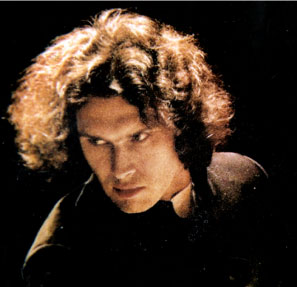Trailing the magnificent Vladimir Jurowski
by Gwen Herat at the Royal Festival Hall, London
Each time I am in London, I am on the trail of Vladimir Jurowski
which is why I head to the Southbank Centre. Meeting Jurowski and
watching him rehearse, perform and direct the London Philharmonic
Orchestra is a fulfilment of a journey into the world of classical
music... from my tender age under my teacher, Glenice Range who strived
hard to get notes and scores into my wandering mind. I love her for
opening the doors to a wonderful world of classical music. He is the
principal conductor for the last three years who has already made an
astonishing impact not only on London musical life but also around the
globe. Considered as one of the hottest properties on the conducting
market, his obvious charisma, clearly endeared him to orchestras,
critics and public alike. Each season he explores a composer at the
Southbank Centre and each season I am there to watch him perform. He was
great with Mussorgsky, Tchaikovsky, Stravinsky and Alfred Schnittke last
year. This year, he focuses on Mahler.
The anniversaries of the composer's birth and death with an
exploration of his great works are on at the Royal Festival Hall.
 |
|
Vladimir Jurowski conducting the Royal
Philharmonic Orchestra at the Royal Festival Hall, London.
|
And who could be better than Vladimir Jurowski to do so?
As the principal conductor of the LPH, I found him explaining the
emmersive aspect of the composer. Talking about Mahler, he said, is like
talking about one's love for Shakespeare or Pushkin. One could not live
without Mahler.
Jurowski's affair with Mahler began when he found a recording of
Mahler's 'FIFTH SYMPHONY' in his father's record collection. When he
heard it he wanted to become a conductor one day.
And Jurowski did it in style. He is one of the three leading
conductors of the day on the international scene. His name rings magic
to millions who throng the Southbank Centre in search of his flawless
and spectacular conducting. With his avante-garde superiority, he has
already marked his place in the high classical scene. Jurowski is looked
up to by the emerging conductors, performing musicians and musicologists
as their guiding star.
I sat in a corner seat with great expectation as though the Messiah
was about to appear. Watching Jurowski rehearse Mahler's SYMPHONY No. 4
in preparation for the season was simply marvellous. His conducting this
symphony is a part of the London Philharmonic Orchestra's year-long
serving of the great Mahler's contented pastoral of the Fourth Symphony
that contains some of the composer's most heart-easing music. The
complexity of it was easy for me to understand and absorb my mind in
great depth. (A far cry away from the day I asked my teacher what a bass
and treble clef was, the first day I sat at the keyboard. And later, she
said I will never make a concert pianist but I still love my teacher
Glenice Range for making me what I am.)
Apart from Symphony No. 4 Jurowski has picker Maler's Symphony No. 3,
Symphony No. 1, (the original version) Das Klagende Lied (original
verson) Suite from the Orchestral Works of JS bach, songs from Des
Knaben Wunderhorn.
Mahler's works are not confined to Jurowski alone and they are played
by other orchestras based at the Southbank Centre. On the other hand,
Jurowski also takes on other composers, works that are equally
virtuoistic and spectacular.
Gustav Mahler at the LPO
Symphony No. 1 in D (1884-88): The composer described this symphony
like the sound of nature and as a struggle against the cosmic forces.
Symphony No. 4 in G (1900): One of the shortest culminating in a
fourth movement and the joyous of all Mahler's symphonies.It is
considered the best of his nine symphonies which made Jurowski performs
it over and over again.
Des Lied Von Der Erde (1909): which means The Song of Earth
considered by many to be the most beautiful and personal of Mahler's
works. The composer referred to this as a symphony. This score is used
as from poems from Chinese writers which examins human life as a
transient stage in earthly renewel.
Symphony No. 2 in D. minor (1896. rev. 1906)
Des Knaben Wunderhorn - (1892-98) A song cycle
Playing these scores, Jurowski resurrects Mahler especially in
Symphony No. 9 when everything would erupt in 2011 when he invites us to
Mahler's turning point. Jurowski who is powerfully passionate on Mahler
who changed his life at 15 when he heard one of Mahler's symphonies that
spurred him to what he is today.
Most of Jurowski's conducting is assured and heralds new orchestral
style most of the time. He has the explosive and emotive power to take
on any Master let alone Mahler. He is remarkable with a consistency of
innovative art in his baton. I watched him yield it many a time.
He possesses a free-flowing momentum even at crescendo height to
bring it down softly and gently. He can even extinguish fire-power in
certain scores if he decides to do so. That is something I like and
found in Jurowski.
To handle a few orchestral creations that rise on so many levels of
Maler that are tricky enthralling and psychological, comes easy to
Jurowski. He would put the strings and winds sperately until they are
picture-perfect and evolve into his orchestra.
So much so, is Vladimir Jurowski.
|

